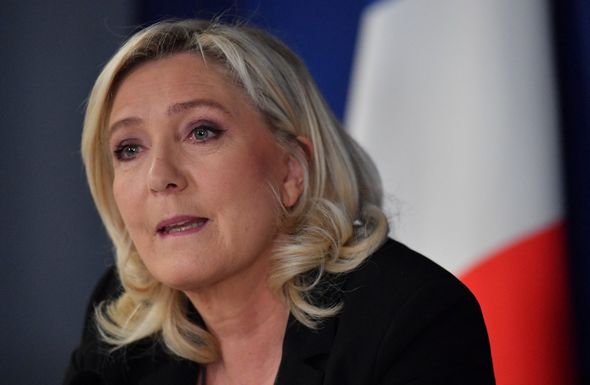French nationalist firebrand Marine Le Pen has officially thrown her weight behind George Simion, the populist Romanian presidential candidate surging toward victory in the May 18 runoff. In doing so, Le Pen is sounding an alarm to globalists across Europe: the age of foreign dictates is ending.
Speaking in defiance of the European Commission’s silence following the shocking annulment of Romania’s first-round election—where anti-globalist candidate Călin Georgescu had emerged victorious—Le Pen called the Brussels-backed interference a “democratic disgrace.”
“The presidential elections were simply canceled—with the blessing of the European Commission,” she declared. “Romania has just handed Ursula von der Leyen a very nice boomerang.”
Le Pen’s endorsement of Simion—the unapologetic nationalist leader of Romania’s AUR party—has electrified the final stretch of the race. Simion, who won over 40% of the vote in the original round before its nullification, has since rallied anti-establishment energy into a full-throttle sovereignty movement.
“Romania first. No more foreign dictates. No more betrayal of our people,” Simion declared.
“Together, for a Europe of sovereign nations—for real freedom and true democracy.”
Brussels in Panic Mode
The endorsement has clearly rattled the Eurocrats. Valérie Hayer, a key Macron ally and head of the EU’s Renew Europe bloc, has launched an emergency campaign urging Romanian expats in France to vote against Simion, warning that Romania could “turn into another Hungary.”
As usual, the pro-Russian smear tactics followed. Hayer claimed Simion’s rhetoric could destabilize European unity, but the usual globalist script appears to be falling flat. Across Romania, voters seem more animated by national pride, economic justice, and cultural integrity than empty threats from Brussels.
A Tectonic Shift in Europe
Polls now show Simion leading with 52% of the projected vote—a dramatic shift in Romania’s political landscape and a major headache for the European Commission, which has increasingly used economic coercion and media influence to maintain its grip on member states.
Le Pen framed the choice starkly:
“No more betrayal. No more dictates. It’s time for a Europe of nations.”
Simion, echoing the populist surge in Hungary, Slovakia, and beyond, represents the return of a Europe that puts its people first—not bankers in Frankfurt or bureaucrats in Brussels.
On May 18, Romania’s runoff election won’t just decide its next president—it could become the next domino to fall in the unraveling of EU globalist hegemony.
Europe is watching. And Brussels is trembling.

